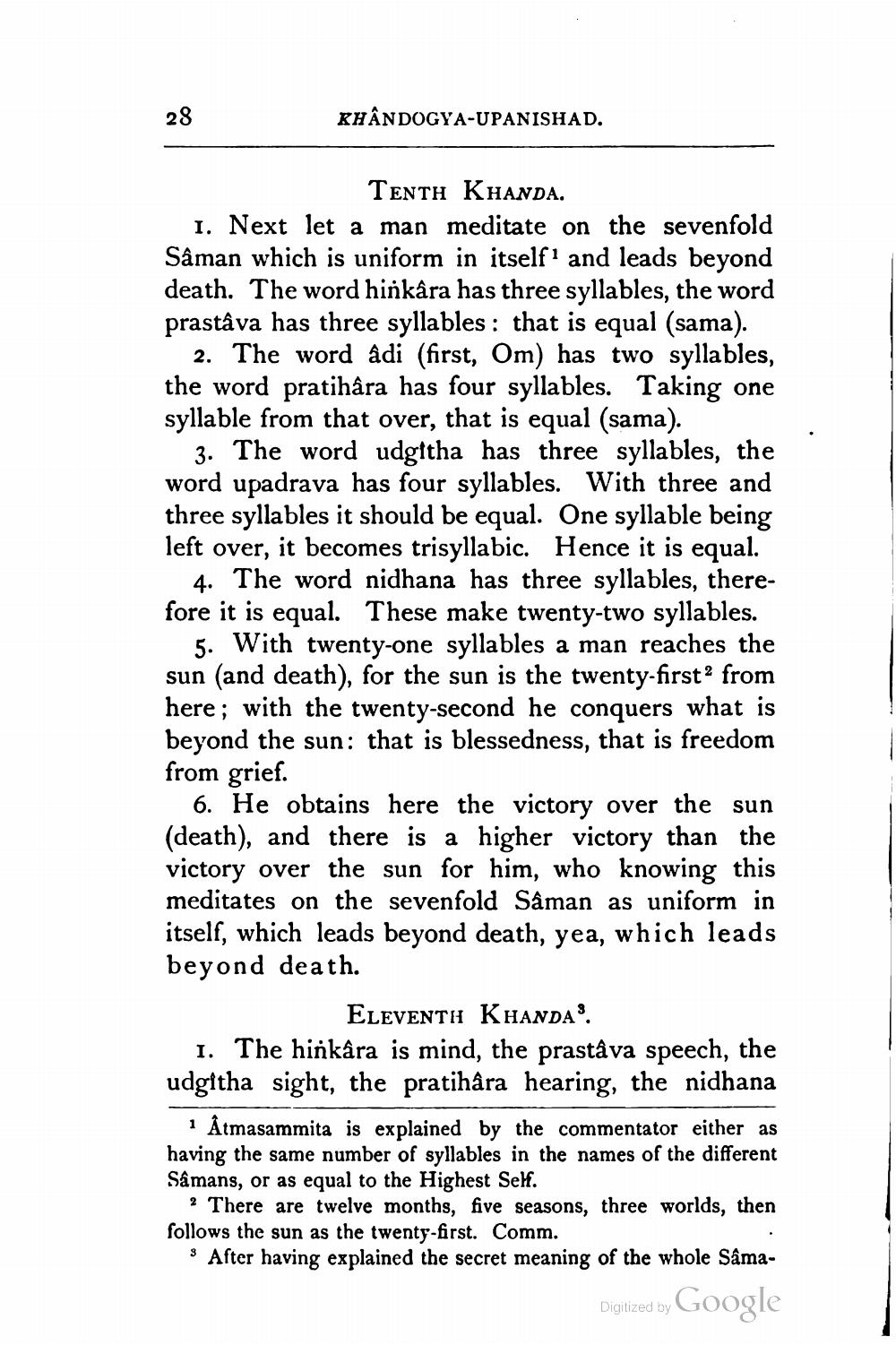________________
28
KHÂNDOGYA-UPANISHAD.
TENTH Khanda. 1. Next let a man meditate on the sevenfold Sâman which is uniform in itself and leads beyond death. The word hinkâra has three syllables, the word prastâva has three syllables: that is equal (sama).
2. The word âdi (first, Om) has two syllables, the word pratihâra has four syllables. Taking one syllable from that over, that is equal (sama).
3. The word udgitha has three syllables, the word upadrava has four syllables. With three and three syllables it should be equal. One syllable being left over, it becomes trisyllabic. Hence it is equal.
4. The word nidhana has three syllables, therefore it is equal. These make twenty-two syllables.
5. With twenty-one syllables a man reaches the sun (and death), for the sun is the twenty-first? from here; with the twenty-second he conquers what is beyond the sun: that is blessedness, that is freedom from grief.
6. He obtains here the victory over the sun (death), and there is a higher victory than the victory over the sun for him, who knowing this meditates on the sevenfold Sâman as uniform in itself, which leads beyond death, yea, which leads beyond death.
ELEVENTH KHANDAS. 1. The hinkâra is mind, the prastava speech, the udgitha sight, the pratihâra hearing, the nidhana
1 Åtmasammita is explained by the commentator either as having the same number of syllables in the names of the different Sâmans, or as equal to the Highest Self.
2 There are twelve months, five seasons, three worlds, then follows the sun as the twenty-first. Comm. $ After having explained the secret meaning of the whole Sama
Digitized by Google




